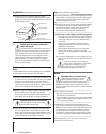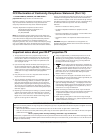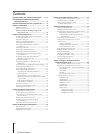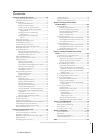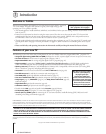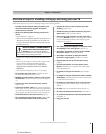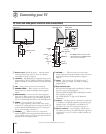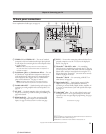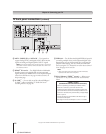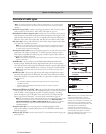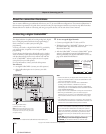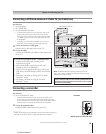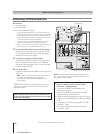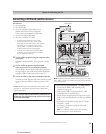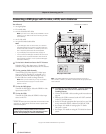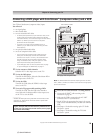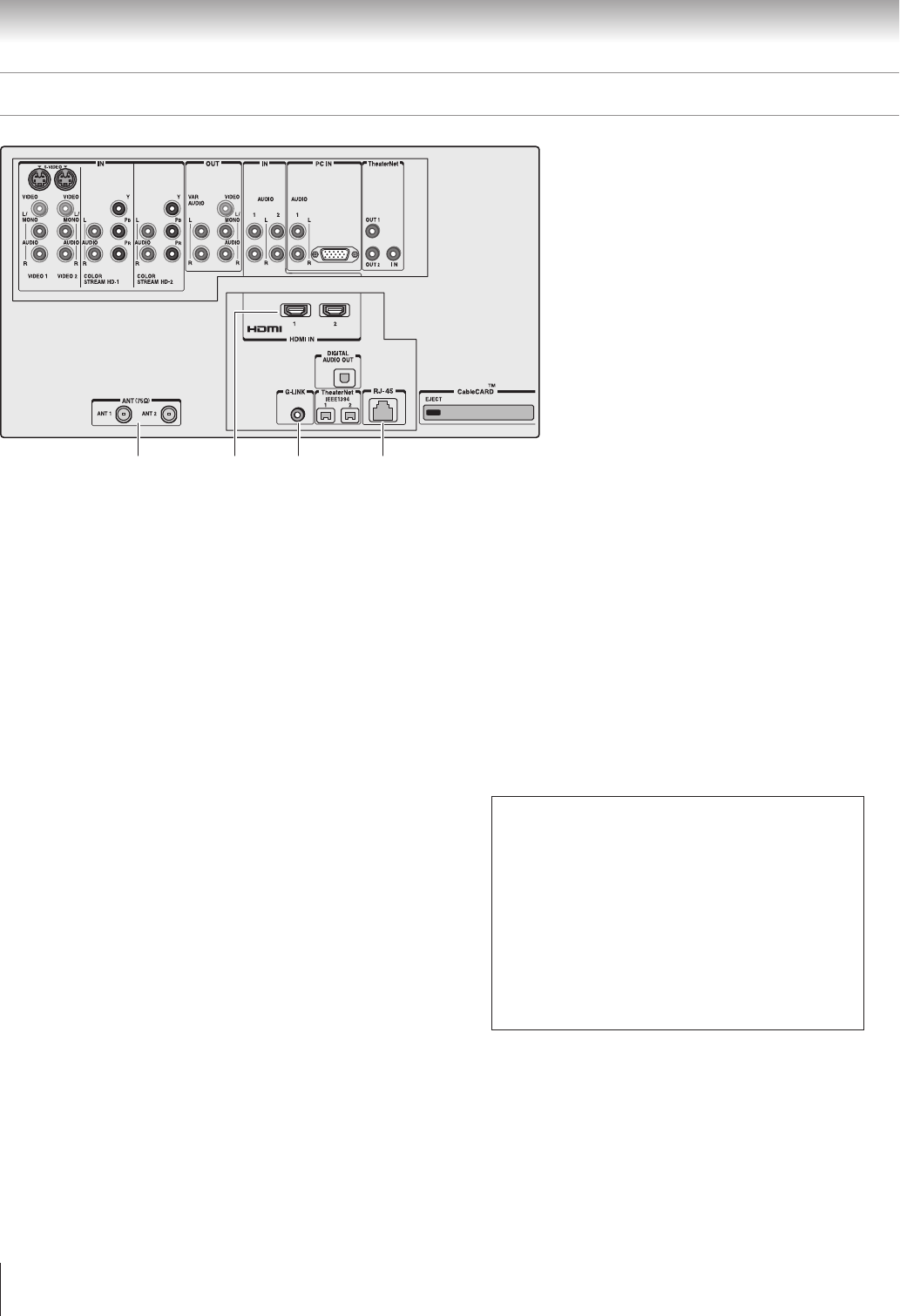
12
Copyright © 2005 TOSHIBA CORPORATION. All rights reserved.
(E) 56/62/72MX195
TV back panel connections (continued)
Chapter 2: Connecting your TV
0 ANT-1 (CABLE) IN and ANT-2 IN — Two inputs that
support analog (NTSC) and digital (ATSC) off-air antenna
signals and analog and digital (QAM) Cable TV signals.
Note: If you have an antenna only, connect it to ANT-1. If you have
both cable TV and an antenna, connect the cable TV to ANT-1 and
the antenna to ANT-2.
!¡ HDMI
™
IN 1 and 2 — Two High-Definition Multimedia
Interface inputs receive digital audio and uncompressed
digital video from an HDMI device or uncompressed digital
video from a DVI device. See page 21. Also see item 5 on
the previous page.
!™ G-LINK
™
— For use with one of the enclosed IR blaster/
G-LINK
™
cables to enable the TV Guide On Screen
™
recording features. See page 28.
*THINC™ system
(Toshiba Home Interactive Network Connection)
The RJ-45 (Ethernet) port allows your Toshiba Cinema
Series TV to connect to your home network. This
revolutionary home entertainment networking system lets
you access MP3 audio files and JPEG picture files that are
stored on a networked PC (as shared files) and play/display
them on your TV.
You also can play your shared MP3 audio files through a
connected audio system.
See pages 24 and 30 and Chapters 10 and 11 for details.
!¢
}
0!¡ !£!™
!£ IEEE1394 — Two bi-directional digital IEEE1394 ports for
connecting multiple devices with compressed digital video.
Because these ports are bi-directional, they can be used for
playback and recording. You can control your IEEE1394
devices using the TV’s TheaterNet on-screen device control
icons. See pages 25–27 and 50.
Note:
• IEEE1394 cable carries both audio and video information;
separate audio cables are not required.
!¢ RJ-45 (Ethernet) (THINC
™
system*) — Allows you to
connect the TV to your home network. See boxed note
below.



